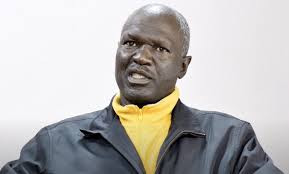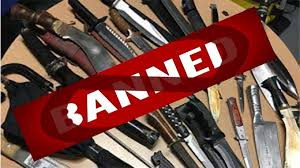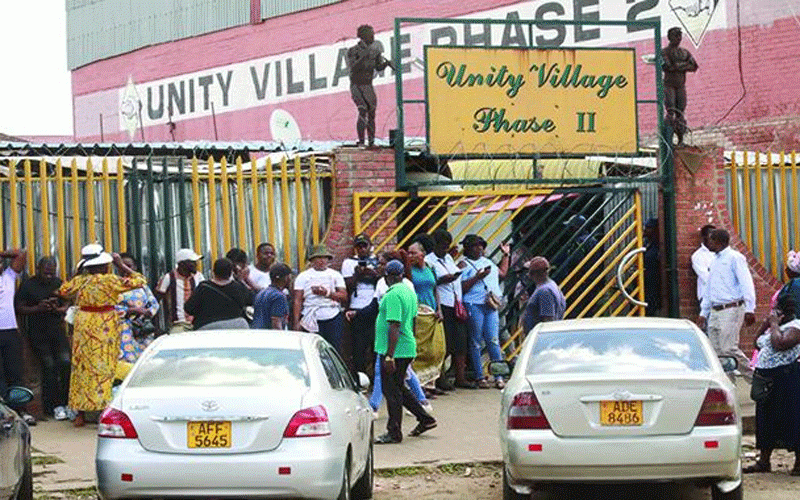DRIVING from Mazowe north, westwards to Muzarabani on the morning that President Emmerson Mnangagwa held his Mashonaland Central star rally at the weekend, I noticed that the road was flooded by many pedestrians who were looking for transport to the event.
The most distinct thing about the villagers was the old clothing, despite their best efforts to give them their Sunday best outlook.
As they tried to flag passing vehicles, they raised fists in the air - a symbol of their affinity to Zanu PF.
It was also a signal that they wanted free rides, which has become normal for those associated with the ruling party.
However, the top of the range vehicles on their way to the venuejust whistled past the villagers at high speed, their big, fuel guzzling engines barely raising a whisper as they flew past.
The big shots drove in convoys, with each car with less than three people, but could not be bothered to give the poor fellow party supporters the rides they badly needed to arrive on time for Mnangagwa’s box office event.
Keep Reading
- Corruption Watch: Get scared, 2023 is coming
- Corruption Watch: Get scared, 2023 is coming
- Letters: Ensuring Africa’s food security through availability of quality seeds
- Is military's involvement in politics compatible with democracy?
Still, the villagers cheered as their leaders whizzed past, a class apart.
Open lorries and State-owned Zupco buses were the transportation reserved for these rural folks.
This is nothing new.
They have always been treated like second class citizens whose only role is to cast the ballot on election day, before being forgotten again till the next poll.
In this case, after the August 2023 elections, their next chance to interact with elites will be in the next election cycle, in 2028.
The extravagance and hypocrisy displayed at the Zanu PF rally in Muzarabani, in the face of poverty afflicting the thousands of the rural folk, was mind-numbing to say the least.
According to Zanu PF’s own estimations, close to 127 000 attended its rally, each of them receiving a loaf of bread, two-piecer chicken box, a fizzy drink and party regalia.
The regalia included a brand-new T- Shirt, cap and scarf.
For many, these could have been their first brand new clothes in years.
Based on the statistics provided by Zanu PF, the bread alone would have cost the party around US$127 000.
The chicken boxes, at US$4 each, would have cost the party about US$508 000, while a further US$762 000 was spent on t – shirts.
This is if everyone supporter received them, at a price of about US$6 each.
In addition, Zanu PF would have expended US$$1,27 million on the wrapping cloths – popularly known as maZambia – just for the Muzarabani rally.
These costs exclude the cost of hiring the fleet of busses which carried supporters to the venue, fuel and other expenses related to government vehicles.
For comparison, the party splashed about US$2 million to bus 70 000 supporters to Magunje Growth Point in Hurungwe two weeks ago for another of Mnangagwa’s star rallies.
it hired 400 buses and 510 trucks to carry supporters across the province, paying out about US$2 000 to each transporter.
If Zanu PF numbers are to be believed, the transport costs for the Muzarabani rally would be considerably more, pushing the cost of hosting the gathering beyond US$5 million.
Mnangagwa also announced at the rally he would be handing out 10 chickens to every woman in the province and goats to village heads.
This was in addition to boreholes drilled in every ward at a total cost of about US$100 000.
All this largesse in a community where parents struggle to pay fees and meet basic costs of living, 43 years after independence.
Tadiwa, a primary school pupil who recited a poem just before the rally was given US$130.
Upon being asked what she would use it for, she said she was going to pay her school fees.
Her response shook many, including Mnangagwa, who reached into his pocket and pulled out a wad of US dollar notes and handed the girl US$300.
Mnangagwa has been insisting on the use of local currency, but he chose the US dollar for the gift.
Tawana Muchena, a Zanu PF supporter from Kwekwe, said they had left home at 4 am aboard a Zupco bus, hungry and sleepy.
At the rally, he rushed to grab two loaves of bread, three fizzy drinks and a two-piece chicken box.
“This is going to keep me together until I am dropped back in Kwekwe, maybe even around midnight. If I don’t feed myself here, I could starve,” he said.
Muchena said he had heard Mnangagwa’s message in Masvingo, Chipinge and Mashonaland West.
“I know what he is going to say, he has not changed his message over the past five rallies. I am here because there is a register that is kept. They need the numbers. I am also protecting my interests,” he said.
As Mnangagwa addressed the rally, many sat in their buses afraid they would miss their coaches at the end of the rally.
Mnangagwa and his family arrived in a helicopter, before being ferried to the venue in a convoy of luxurious vehicles.
The Zanu PF leader is so far removed from the daily lives of the people he is supposed to lead, it seems.





